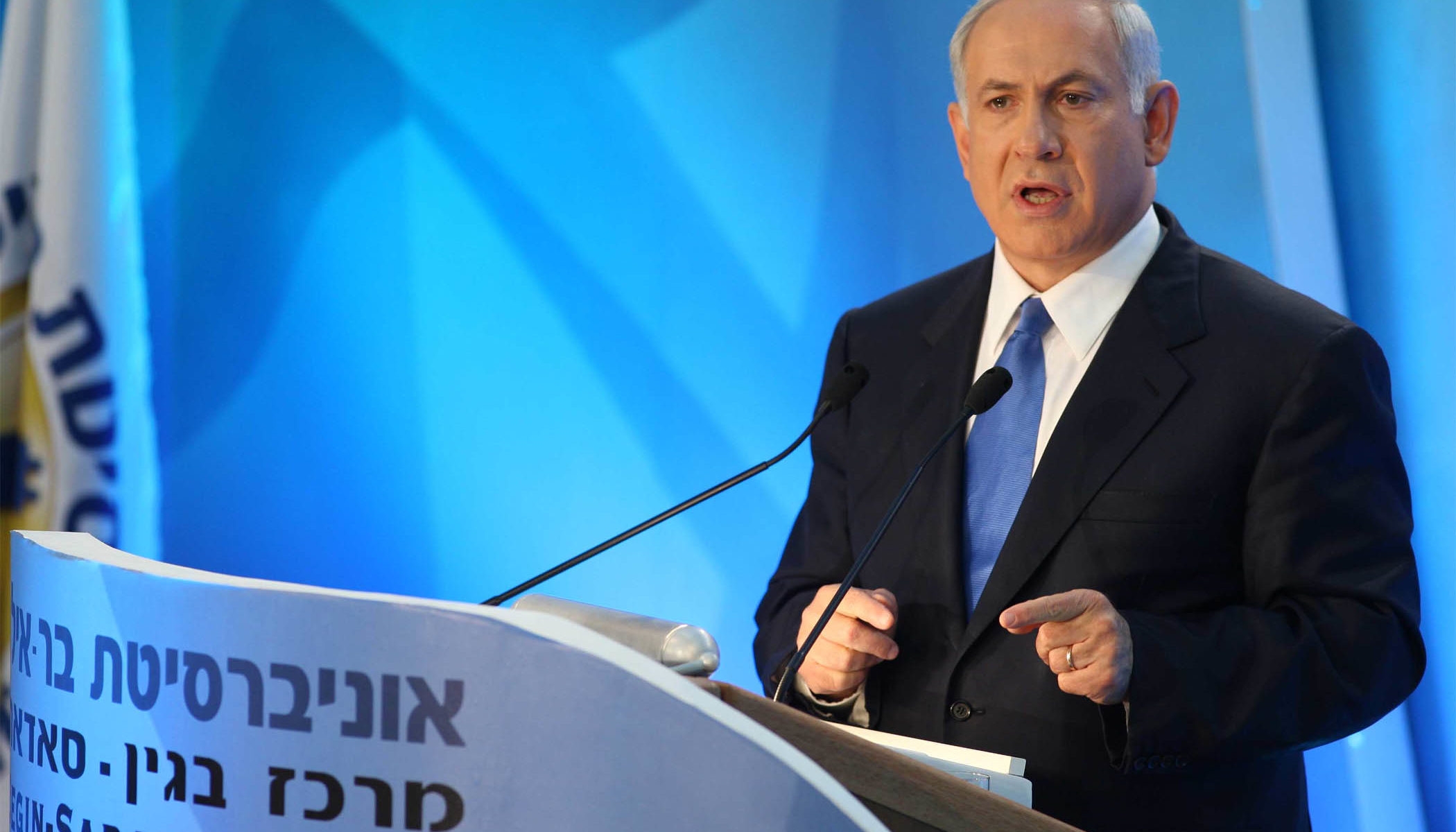NEWS ANALYSIS
JERUSALEM (JTA) — After two months of intense American pressure, Israeli Prime Minister Benjamin Netanyahu finally uttered the magic words: two states for two peoples.
“In my peace vision, there are two free peoples living together side by side in our small land, with good neighborly relations and in mutual respect — each with its own flag, its own national anthem and its own government,” Netanyahu declared in a much-anticipated speech Sunday at Bar-Ilan University.
The question is, will the speech be enough to kick-start a genuine negotiating process with the Palestinians?
Netanyahu set numerous conditions for a Palestinian state.
The Palestinians first would have to recognize Israel as the state of the Jewish people; Jerusalem would remain Israel’s undivided capital; a solution for Palestinian refugees would have to be found outside Israel’s borders; and the United States would have to guarantee that the Palestinian state would remain demilitarized and not sign treaties with countries hostile to Israel.
“If we get this guarantee for demilitarization and necessary security arrangements for Israel, and if the Palestinians recognize Israel as the state of the Jewish people, we will be willing in a future peace agreement to reach a solution of a demilitarized Palestinian state alongside the Jewish state,” Netanyahu pledged.
The White House called the statement “an important step forward.”
The initial signs that Netanyahu’s speech would spur renewed negotiations were not promising.
Chief Palestinian negotiator Saeb Erakat complained that by taking core issues like Jerusalem and refugees off the table, the new Israeli leader had closed the door on peace talks.
“Netanyahu will have to wait a thousand years to find a single Palestinian who will cooperate with him on the basis of his Bar-Ilan speech,” Erakat declared.
Egypt’s President Hosni Mubarak, whose views carry considerable clout in the Arab world, said Netanyahu’s demand that the Palestinians recognize Israel as a Jewish state was “destroying the chances for peace.”
Some Israeli analysts suggest that the strong U.S. pressure on Israel in recent weeks has lulled the Palestinians into thinking that President Obama will deliver Israel for them.
So the next key move is Obama’s. He will have to decide whom to pressure now: Netanyahu to make further concessions, or the Palestinians to engage in peace talks on the basis of Netanyahu’s acceptance of the two-state model.
In his speech, Netanyahu studiously avoided saying anything about freezing building in existing West Bank settlements or removing illegal outposts. Obama had insisted on a freeze for two reasons: to win Palestinian confidence and press Netanyahu into making the more significant two-state concession.
By making the two-state commitment, Netanyahu now hopes to gain wiggle room over the timing and scope of any settlement freeze.
When former Prime Minister Ehud Olmert engaged in a vigorous peace process with the Palestinians — and George W. Bush was president — Israel was allowed to build in Jewish settlements west of the security fence on the grounds that they almost certainly would remain in Israel proper under the terms of any final peace deal.
Netanyahu will want to negotiate something similar, at the very least.
The new American administration has been playing a strong carrot-and-stick game with Israel, trying to give it the confidence to make concessions while leaning on it heavily to do so. In practice, this has meant re-emphasizing America’s unshakeable commitment to Israel’s security and clarifying its support for Israel as the Jewish state, while pressing Netanyahu on settlements and the two-state model.
Netanyahu emerged from his mid-May meeting with Obama shaken by the American president’s dispassionate resolve. Twice the prime minister dispatched high-level emissaries in an effort to mollify the Americans, but to no avail.
At a recent meeting in London, an Israeli delegation led by Cabinet minister Dan Meridor got no change from special U.S. Mideast envoy George Mitchell, and Israeli Defense Minister Ehud Barak returned from a recent trip to Washington with a message from the Americans that they “meant business.”
What made the American stick even more effective was the fact that it was backed by an ambitious peace timetable: Obama reportedly has informed the Israelis that he intends to announce a full-fledged American peace plan in July, and hopes to achieve peace between Israel and the Arab world, including the establishment of a Palestinian state, within two years.
In sync with the American timetable, the Egyptians have given the rival Palestinian factions, Fatah and Hamas, until July 7 to reach a national unity agreement. In making his Bar-Ilan speech, Netanyahu was trying to keep Israel ahead of the curve.
In the speech, Netanyahu entered into a subtle dialogue with Obama over the causes and justification for Israel’s establishment. Contrary to what the president implied in his June 4 Cairo speech, Netanyahu argued that Israel was not a result of the Holocaust and that Jewish suffering was not the main justification for its creation. Rather it was a case of an ancient people returning to its homeland, over which they have inalienable and millennia-old historic rights.
This argument may help Netanyahu placate the more right-wing elements of his party and his governing coalition. If Netanyahu’s speech helps kick off renewed negotiations with the Palestinians, however, the challenge of keeping together the coalition may grow.
JTA has documented Jewish history in real-time for over a century. Keep our journalism strong by joining us in supporting independent, award-winning reporting.






